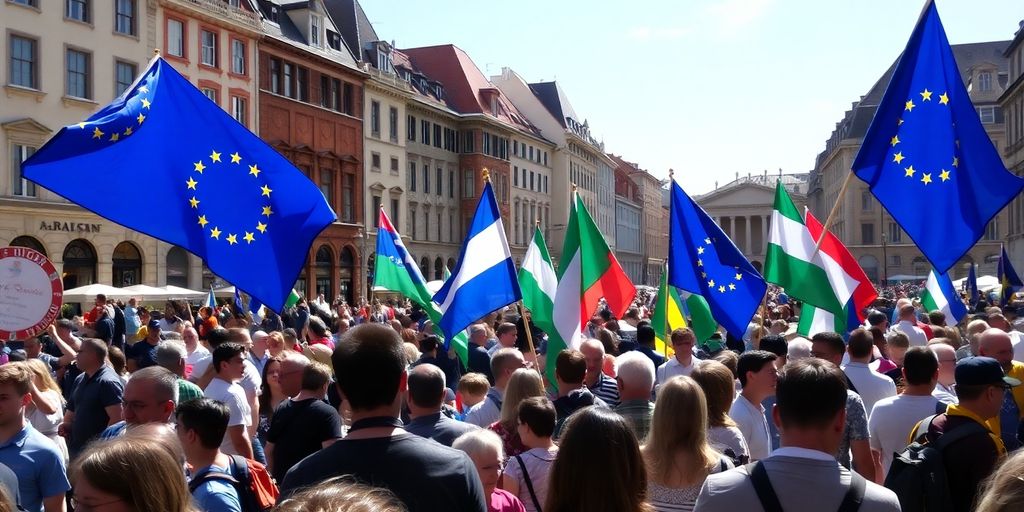Bulgaria’s bid to adopt the euro currency is facing significant domestic challenges despite nearing EU approval. Widespread protests, fueled by fears of inflation and economic instability, are clashing with the government’s push for deeper European integration. Disinformation campaigns are exacerbating public anxieties, creating a complex landscape for the nation’s economic future.
Bulgaria’s Euro Ambitions: A Divided Nation
Bulgaria is on the cusp of achieving its long-held ambition to join the eurozone, a move intended to strengthen its ties with Western Europe. However, this aspiration is met with considerable internal opposition. Thousands have rallied against the euro, demanding a referendum on the currency transition from the lev. This resistance is particularly strong in smaller towns and rural areas, where citizens express fears of increased poverty and a lack of familiarity with international transactions.
The Role of Disinformation and Political Opposition
The public’s apprehension is significantly amplified by widespread disinformation campaigns on social media. False claims, such as the EU confiscating savings to fund Ukraine, are circulating, contributing to a climate of fear. Political groups, including the far-right Vazrazhdane party, have capitalized on these fears, organizing anti-euro protests. Even President Rumen Radev has fueled the debate by proposing a referendum, though this was rejected by the pro-European parliamentary majority who accused him of acting in Russia’s favor.
Economic Realities and Public Perception
While public sentiment, as indicated by recent surveys, shows nearly half of Bulgarians oppose euro adoption, economists offer a different perspective. They argue that joining the euro will not bring massive short-term economic changes, given that the lev is already pegged to the euro. Benefits are expected to include lower borrowing costs, easier price comparisons, and deeper integration into the EU’s economy. Despite these potential advantages, the memory of a 1996-1997 economic crisis and a general mistrust of institutions contribute to the widespread fear of economic change among the population.
Key Takeaways
- Bulgaria’s euro adoption faces significant public opposition and protests.
- Disinformation campaigns are a major factor in fueling public fears.
- Political figures, including the President, have contributed to the anti-euro sentiment.
- Economists largely support euro adoption, citing long-term benefits and minimal short-term inflationary impact.
- Despite domestic challenges, the government remains committed to the eurozone path, with EU approval anticipated.
Path Forward: EU Approval and Domestic Challenges
Despite the domestic unrest, Bulgaria has largely met the technical requirements for eurozone entry, including low inflation and sound government finances. The European Commission is expected to give its approval, paving the way for other member states to decide on Bulgaria’s candidacy. The government remains steadfast in its commitment to the European path, viewing euro adoption as a crucial step towards economic stability and integration, even as it navigates persistent political tensions and public anxieties.
Sources
- EU member Bulgaria faces protests over adopting the euro, France 24.
- Bulgaria is close to joining the euro currency but faces disinformation and fear, ABC News.
- Deputy PM: Bulgaria on the Right Track Toward Eurozone, Despite Political Tensions – Novinite.com, Novinite.com.
- Divisions persist in Bulgaria hours before the EU decides whether country should adopt euro currency, Yahoo.
- Bulgaria’s Path to Eurozone: Domestic Challenges and Opportunities – News and Statistics, IndexBox.






